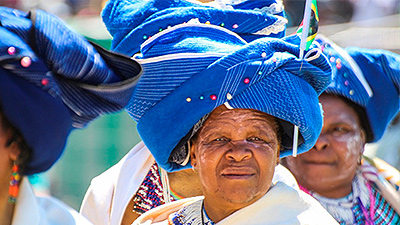Heritage Month recognises aspects of South African culture which are both tangible and intangible: creative expression such as music and performances, historical inheritance, language, food, as well as the popular memory.
Various heritage sites and monuments in South Africa are named after the liberation struggle icons such as the Sol Plaatjie Municipality in the Northern Cape, the Nelson Mandela Museum in the Eastern Cape, Luthuli House in Gauteng, the Shaka Zulu Airport in KwaZulu-Natal, the Tshwane Municipality in Gauteng and Steve Biko Memorial in the Eastern Cape.
South Africa is also home to eight of the 981 World Heritage Sites which are recognised by the United Nations Educational and Scientific Organisation as places of outstanding cultural and historical importance.
These sites are Robben Island, iSimangaliso Wetlands Park, the hominid sites at Swartkrans, Sterkfontein and Kromdraai (known as the Cradle of Humankind), Ukhahlamba-Drakensberg Park (mixed natural and cultural), Mapungubwe Heritage Site, the Cape Floral Kingdom, Richtersveld Cultural and Botanical Landscape and Vredefort Dome.
The sites offer a diversity and abundance of cultural and natural values that encapsulate the value systems of the country.
In addition, the South Africa has 17 national heritage sites, and the country is taking steps to protect more of them.

Lieliesleaf Farm
Government has set in motion the process of declaring another historic place in the history of South Africa, Liliesleaf Farm in Rivonia, a heritage site.
Speaking at the 50th commemoration of the Liliesleaf Farm raid by the apartheid police President Jacob Zuma said preserving the site would contribute to the on-going process of national healing and the building of a more cohesive society.
During the commemoration, President Zuma said it’s our joint responsibility to tell the story of the farm.
“We all have a responsibility to ensure that the story of Liliesleaf and the Rivonia Trial is told in full for the benefit of current and future generations and that to ensure that the ideas born on this farm live forever,” Zuma said.
These sides are not just symbols of the countries past, but are the foundation of South African future as well.

Braai Day
Heritage day, also known as National Braai Day as the result of a pointed 2005 media campaign, was not originally intended to be an official South African public holiday.
– By


